AIxMusic
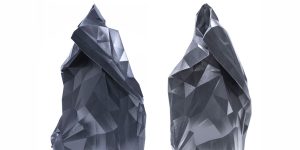
Uncertainty with AI-terity (Music Performance)
Koray Tahiroğlu (FI/TR)
The composition Uncertainty keeps the musician in a hesitant state of performance, providing a non-rigid but identifiable musical events, followed by ever shifting new sounds. Uncertainty is a composition written for the AI- terity instrument that comprises computational features of a particular artificial intelligence (AI) model to generate relevant audio samples for real- time audio synthesis. The unusual behaviour of the Al-terity puts the performer in an uncertain state during performance. Together with being able to move through timbre-changes in sonic space, the emergence of new sounds allows the musician to explore a whole new range of musical possibilities. Composition turns into a continuous state of playing, reformulating an idiomatic relationship with the Al-terity and opening up a fresh variety of musical demands.

Demystifying AI with Music
Roberto Viola (IT), Elaine Chew (US/UK), Patrick van der Smagt (DE), Matthias Röder (DE)
What could be the role of AI in music then? The conversation will reflect on these questions also in the light of a European vision on ‘trustworthy AI’.
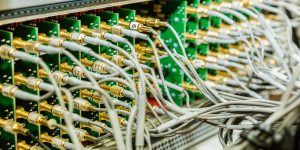
Ars Electronica AIxMusic Online Hackathon: Final Presentations
Annelies Termeer (NL) moderator + Participants
For the occasion of the first online Festival, Ars Electronica will host its first international AIxMusic Hackathon as part of the AIxMusic Festival 2020.
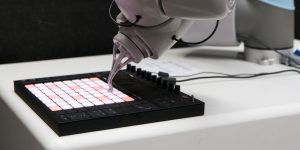
AIxMusic - Artificial Stupidity
Moisés Horta-Valenzuela (MX/US), Artemi-Maria Gioti (GR), Ali Nikrang (AT), Alex Braga (IT) and Portrait XO (US)
The panel on Artificial Stupidity invites artist present at the Ars Electronica Festival to share their experiences in the context of AIxMusic. AI is a media trend right now and a controversial topic.
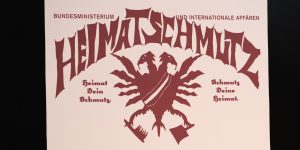
DIRTY LIVES BETTER
Barbara Ungepflegt (AT), Elsbeth Wallnöfer (IT)
Since December 2017 Barbara Ungepflegt has been Minister for Homelandtrash and International Affairs. Ungepflegt considers urgent measures to preserve the constantly disappearing homeland dirt until it is too late for Team Austria, animals and dumplings. In cooperation with Elsbeth Wallnöfer, chairwoman in the home country, the Minister will present in detail the program of DIRTY LIVES BETTER at the 2020 Ars Electronica Festival.
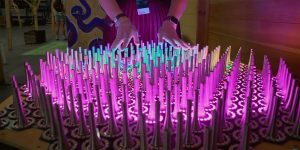
This is Sónar+D
Sónar+D – Sónar Festival's creative technologies conference – is an international congress exploring how creative minds are changing our present and imagining new futures, in collaboration with researchers, innovators and business leaders from all sectors and industries.
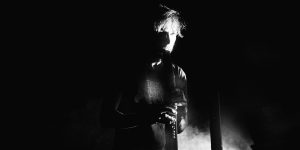
AI x Music Festival: Bot Bop Musical creation and innovation with AI
Andrew Claes (BE) and Dago Sondervan (NL)
Musical phrases are fed in real-time to a live coded machine learning model. The emerging virtual agent reacts and is again reacted to, creating an organic feedback loop. Utilising improvisational, instant composing and algorithmic musical techniques, listen to the duo becoming a trio during the course of this performance.
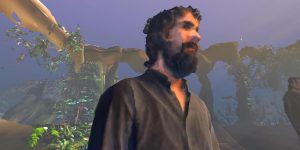
Acte de Fe
Marc Vilajuana, Adrià Grandia, Carlos Martorell
Act of faith (Acte de Fe) is an exploration of our relationship with technology, its similarities with the one we have with religion, the tools involved in both processes, and its impact on us and in our sacred/private space. Mise-en-scène will consist in a liturgy performed by Marc Vilajuana (voice, effects, hand drum), Adrià Grandia (acoustic and MIDI hurdy-gurdy, modular synth, laptop, aerophones), Carlos Martorell (coding, synths, motion sensors, artiphon) and a real-time reactive AI trained with religious scores.
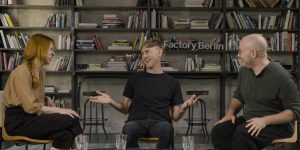
Interdependence with Richie Hawtin: AI for humans
Holly Herndon, Matt Dryhust
In this discussion we explode the false binary of humans and machines in the music making process, explore ways that AI systems could actually help get more humans paid rather than displace them, and discuss the necessity of artists having a seat at the table in the process of AI tool development.
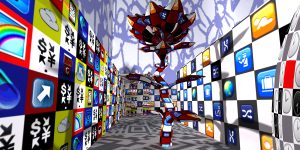
CNMAT ODOT
John MacCallum(USA), Jeff Lubow (USA)
In this workshop, we will provide a brief, practical introduction to odot, a dynamic, multi-paradigm programming environment that operates on Open Sound Control. Developed at CNMAT beginning in 2007, odot has evolved into a powerful and robust suite of tools useful in a variety of contexts, from gesture signal processing to computer-aided composition. During this workshop, we will discuss the current state of the package and the future of the project.
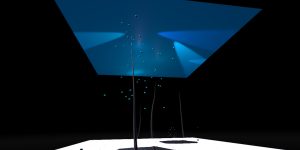
The QuBits VR Space
Jon Kulpa
Jon Kulpa is available to host a live online demonstration/performance of QuBits VR. The QuBits project is a virtual reality (VR) environment built by the composer that offers an expanded medium for musical experience with integrated space and visuals. The environment was designed to explore a musical aesthetic valuing sound mass, spatial sound, evolving sound, and algorithmically generated sonic structures. The user of the VR system plays a key role in shaping these musical elements. The user first discovers what behaviors are possible through exploration and chance encounters. They can then shape each discovered behavior with nuance if they choose. The system provides a unique experience each time it is run. The sounds are a mix of real world sampled sound, granular synthesis, and real-time generated synthetic sound.
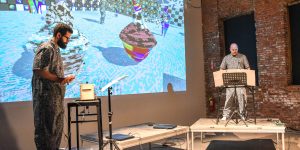
ORCHIDEA with Composer and Lead Researcher at CNMAT
Carmine Cella
Carmine Cella is available to host a live online demonstration/workshop for ORCHIDEA, a framework for static and dynamic computer-assisted music orchestration. Orchestration consists largely of choosing combinations of sounds, instruments, and timbres that support the narrative of a piece of music. The ORCHIDEA project assists composers during the orchestration process by automatically searching for the best combinations of orchestral sounds to match a target sound, after embedding it in a high-dimensional feature space.
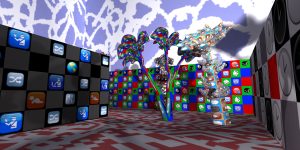
ALICE, ALICES UNCHAINED, and THE FLOWER MATRIX
Edmund Campion and Claudia Hart
ALICE, ALICES UNCHAINED, and THE FLOWER MATRIX is a long-term collaborative project between media artist Claudia Hart and composer Edmund Campion (CNMAT). Since 2013, they have collaborated on the ALICES project, a series of artworks, loosely connected to Alice in Wonderland, and appearing through the years as a series of pieces that migrate from performance-based multi-media theatre, video, gallery installations, to virtual reality environments. This film documents the history of the on-going project with excerpts from several of the works along with interviews with the artists and collaborators.
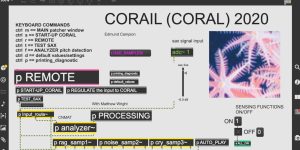
Live Performances in occasion of the AIxMusic Opening ceremony
Edmund Campion, CORAIL with Steve Adams of the Rova Saxophone Quartet, and Andrew Blanton, WAVEGUIDE, Claudia Hart, Edmund Campion
Edmund Campion, CORAIL with Steve Adams of the Rova Saxophone Quartet, and Andrew Blanton, WAVEGUIDE, Claudia Hart, Edmund Campion WAVEGUIDE - 2017 - percussion, distributed audio and electronics: Music composition and performance by Andrew Blanton Text by Yvette Granata Composition and software by Andrew Blanton Special thanks to Neal Riley for technical support. CORAIL - version 2020 - improvising saxophonist and interactive computer system: Composition and computer environment design by Edmund Campion, Director, CNMAT Tenor Saxophone by Steve Adams Software contributions by Manuel Poletti, Matthew Wright, Edmund Campion (and a host of others) This concert is being streamed live from the Center for New Music and Audio Technologies (CNMAT) and made possible by CNMAT Researcher and Technical Director, Jeremy Wagner
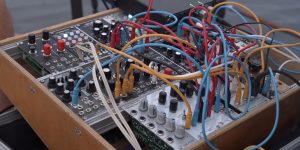
“Non-Player Piano” sound performance
HSE Art And Design School: Sound Art and Sound Design Department
Non-Player Piano was created specifically for Ars Electronica Festival 2020. It will be performed on Moscow River in collaboration with Mubert AI App. The performance will include live music improvisations aided by an artificial neural network “trained” to analyze the surrounding environment, such as the weather, time of day, location, speed, and type of movement.
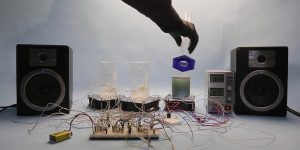
Datasets vs Mindsets: Performance Program
Katarina Melik-Ovsepian + Nikita Prudnikov (aka monekeer) (RU), Maria Molokova (RU), Kira Weinshtein (RU), Nikolay Golikov, Yulia Glukhove (holoherz), EOLA
The project includes a one-day performance program using innovative forms of representation and interaction between online and offline formats, such as new approaches to webcasting and experimental web-interfaces, which create brand-new user experiences for online visitors.
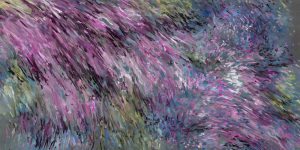
Transient - Impermanent paintings
Quayola (IT)
Transient - Impermanent paintings is an audiovisual concert for two motorized pianos and two conductors in collaboration with generative algorithms. Hyper-realistic digital brushstrokes articulate endlessly on a large-scale projection as if on a real canvas. Each brushstroke is sonified with a piano note, creating polyphonic synesthetic landscapes.
The Grid: Full Festival Experience
The Grid (US/EU), Gray Area (US), Codame (US), ZERO1 (US), MUTEK.SF (US), EUNIC Silicon Valley (US), EUNIC Washington DC (US), EUNIC New York (US), Ars Electronica AIxMusic Festival (AT), STARTS, European Commission (EU), Center for Humane Technology (US), Salesforce (US)
By mobilizing artists, technologists, and policy makers from around the world, Exposure reimagines interdisciplinary and international collaboration to overcome deadlock and siloed thinking. Through 4 days of art, panels, performances, interactive experiences, talks, and workshops, Exposure works towards shaping technological development for the benefit of all. Be part of it and join in on four livestreams!
AIxLITERATURE: Poetry Is A Machine
The Grid (US/EU), Vikram Chandra (IN/US), Bryan McCann (US), Andrew Piper (CA), M Eifler (US), Clemens J. Setz (AT), Clara Blume (AT/US), Vanessa Chang (US/SG/AU)
How does the algorithmic contour the lyrical? Nearly a century ago, William Carlos Williams declared, “A poem is a small (or large) machine made out of words.” As artificial intelligence becomes a writing tool, his words take on a new resonance. Some critics of algorithmic literature decry the incursion of automation into this essentially human creative practice.
AI x MUSIC: Artificial Creativity or Enhanced Humanity
The Grid (US/EU), Christine Payne (US), Monica Dinculescu (US), Ali Nikrang (AT), Clara Blume (AT/US)
The music industry was transformed drastically over the past couple of decades. For better or worse, these developments are tied to technological advancements and a rapidly adapting consumer behavior. Tech companies are invested in a future where AI forms an indispensable part of the creative process. Recent breakthroughs are already paving the way for music that is entirely created and performed by algorithms. But does that make AI an artist?


